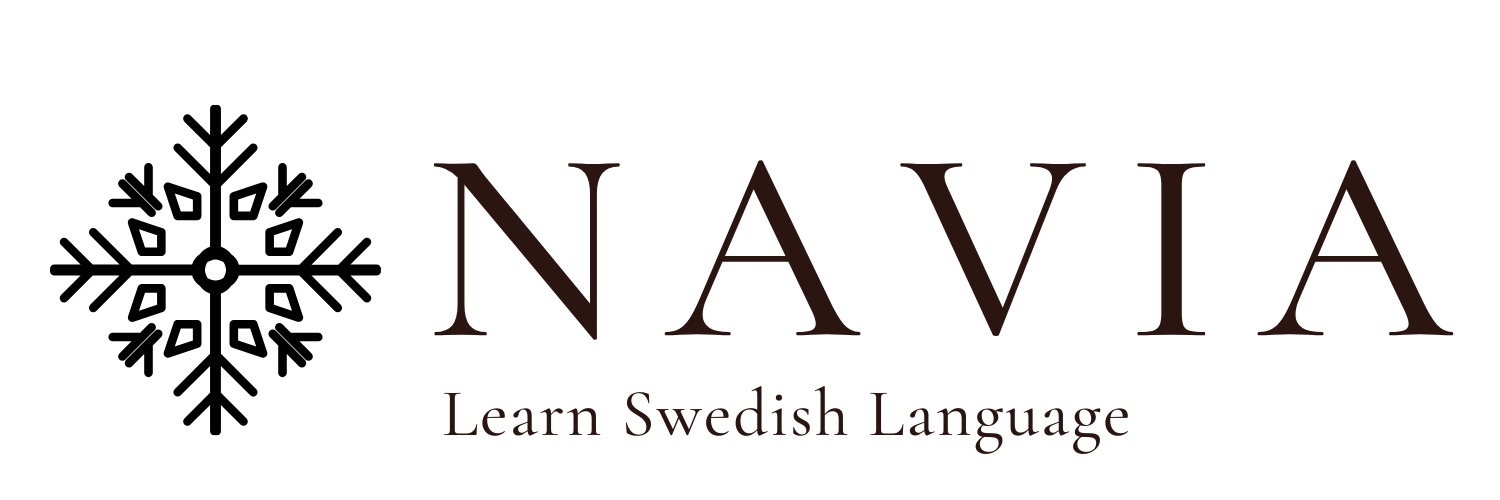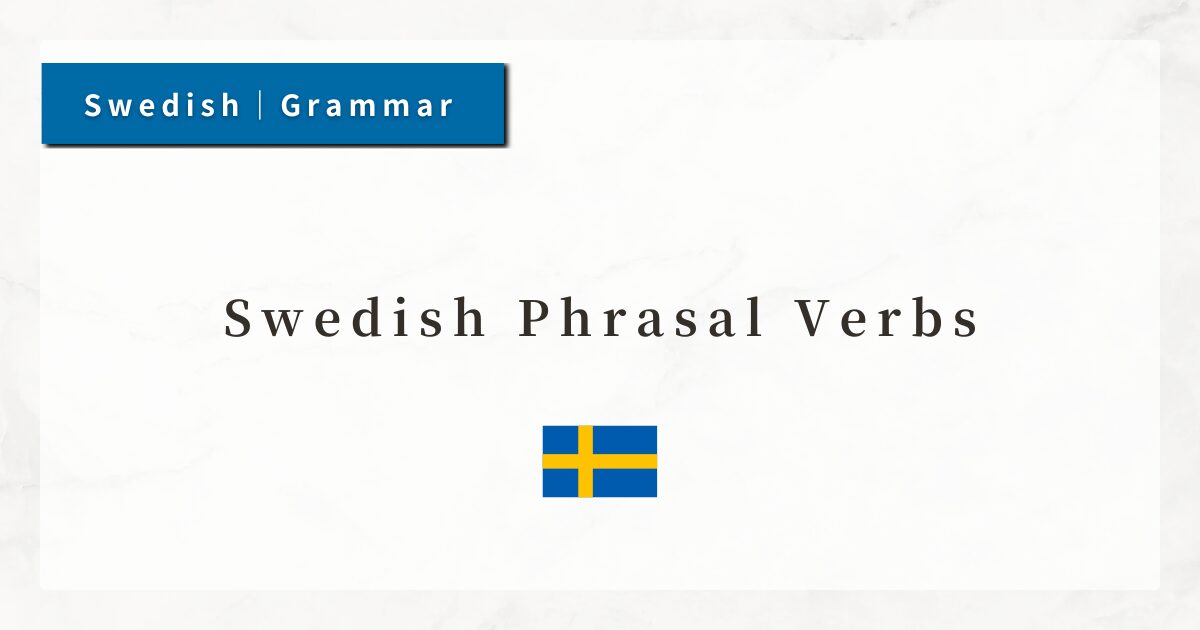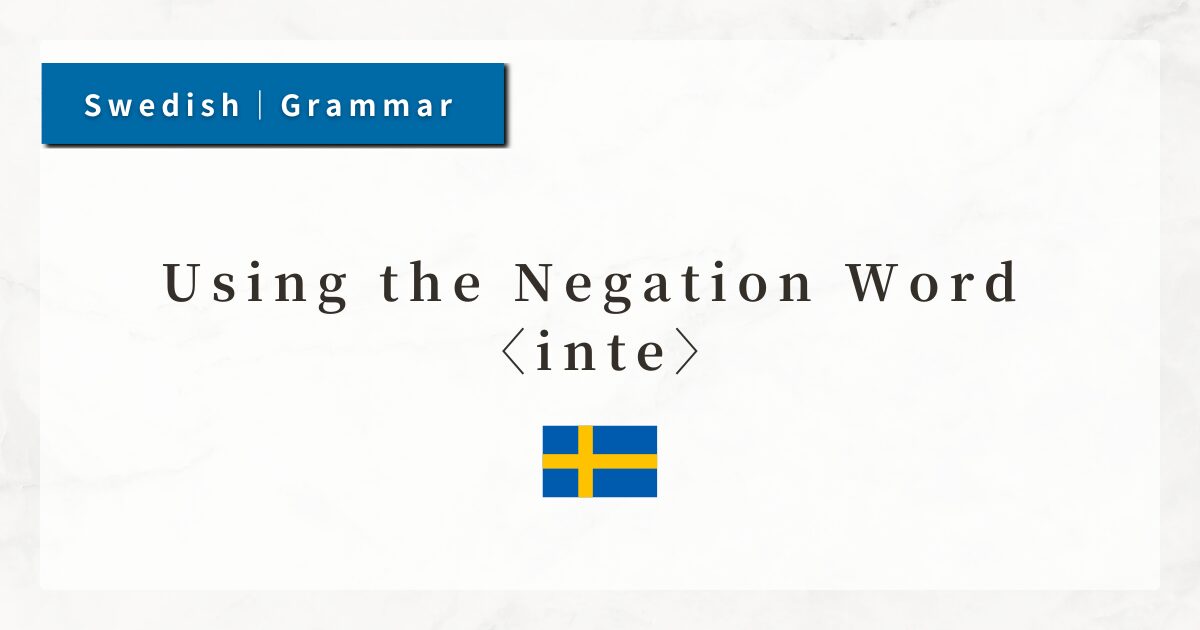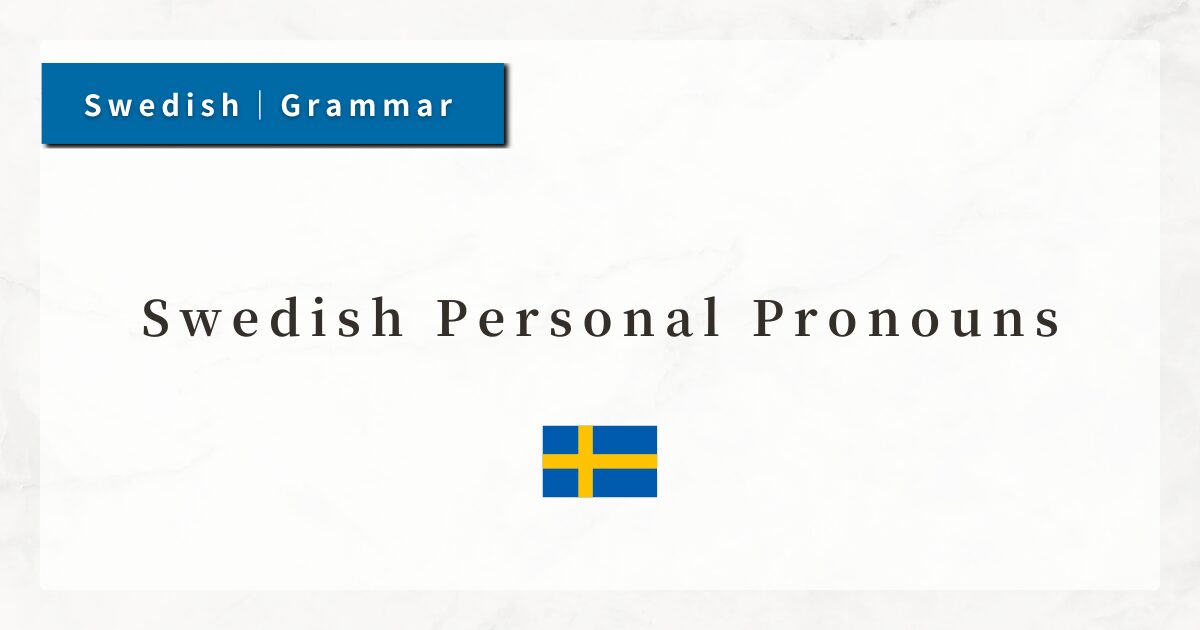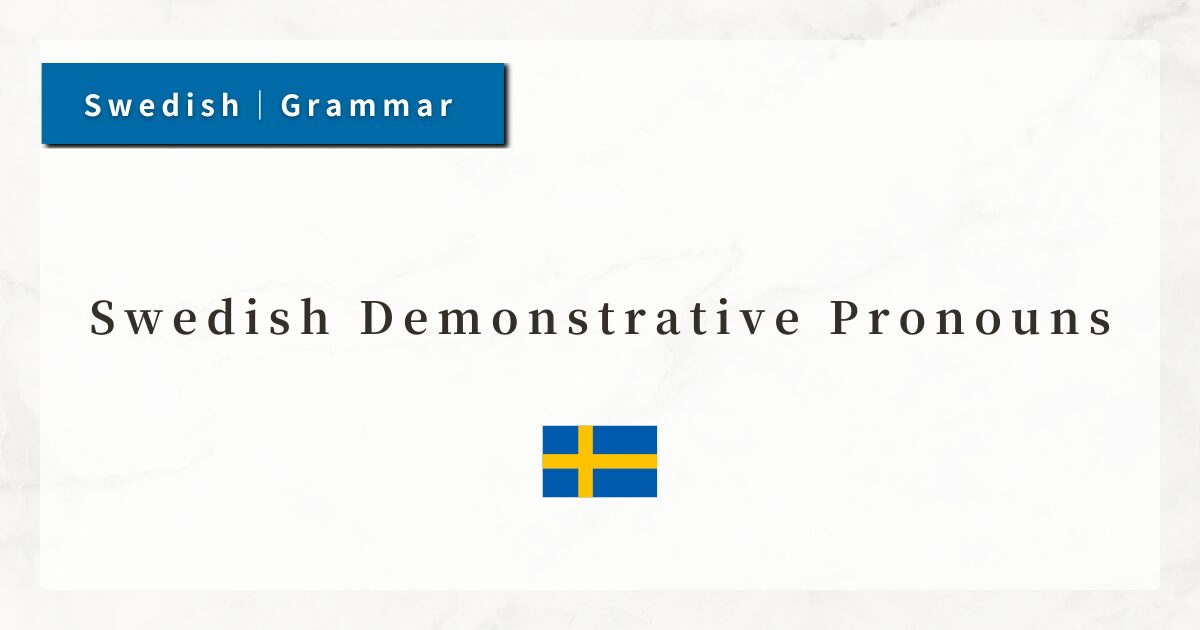#42 Swedish Indefinite Pronouns någon / något / några|Usage and Examples
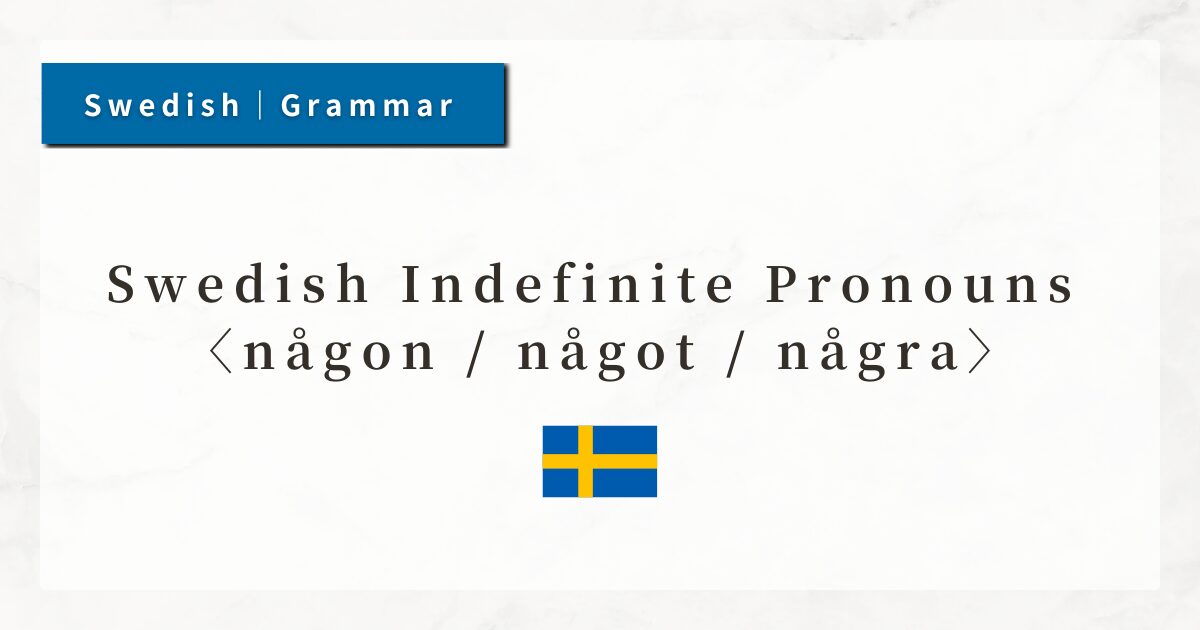
The Swedish indefinite pronouns någon / något / några mean “someone,” “something,” or “some (of).”
Their form changes depending on the gender (common or neuter) and number (singular or plural) of the noun they modify. They can be used either together with a noun or independently.
In this lesson, I will explain the basic usage of någon / något / några, their forms, and the rules for choosing the correct one.
1. Basic Meaning of någon / något / några
These pronouns are used to refer to unspecified people, things, or quantities. In English, they correspond to someone, something, or some.
Since Swedish nouns are either common gender or neuter gender, the choice depends on the noun’s gender and number.
| Form | Usage | Gender / Number | Example |
|---|---|---|---|
| någon | modifies a common gender noun | singular, common gender | någon bok (some book) |
| något | modifies a neuter noun | singular, neuter gender | något hus (some house) |
| några | modifies plural nouns | plural (common or neuter) | några böcker (some books) |
Singular forms express a vague “some/any.” The plural form några indicates “several / some (plural).”
2. Usage with a Noun
The most basic pattern is to place någon / något / några in front of a noun. The correct form must agree with the noun’s gender and number.
- Har du någon bok?
(Do you have a book?)
→ bok (book) is common gender, so någon is used. - Hon äger något hus vid sjön.
(She owns a house by the lake.)
→ hus (house) is neuter, so något is used. - Vi har några idéer för projektet.
(We have some ideas for the project.)
→ idéer (ideas) is plural, so några is used.
In negative sentences, these forms are replaced by ingen / inget / inga.
3. Usage Without a Noun
These pronouns can also stand alone, with the reference understood from context.
någon (someone, somebody): refers to a person
- Det finns någon här.
(There is someone here.) - Känner du någon i den här staden?
(Do you know someone in this town?)
något (something): refers to a thing or event
- Jag hörde något ute på gatan.
(I heard something out in the street.) - Vill du äta något?
(Do you want to eat something?)
några (some, a few): refers to several people or things
- Jag känner några från den festen.
(I know some people from that party.) - Det finns några kvar i kylskåpet.
(There are some left in the fridge.)
Here, någon means “an unspecified person,” något means “an unspecified thing,” and några means “some people/things.” They do not identify a specific person or object.
4. Usage in Negative Sentences
Normally, någon / något / några are used in affirmative or interrogative sentences. In negative sentences, they are replaced with ingen / inget / inga.
- Har du någon bok?
(Do you have a book?) - Nej, jag har ingen bok.
(No, I don’t have a book.)
This is similar to the English distinction between some and any, which often confuses learners.
5. Summary
- någon / något / några are indefinite pronouns referring to unspecified people, things, or quantities.
- Their form changes depending on the gender (common / neuter) and number (singular / plural) of the noun.
- They can be used both with a noun and independently.
- In negative sentences, they are replaced by ingen / inget / inga.
